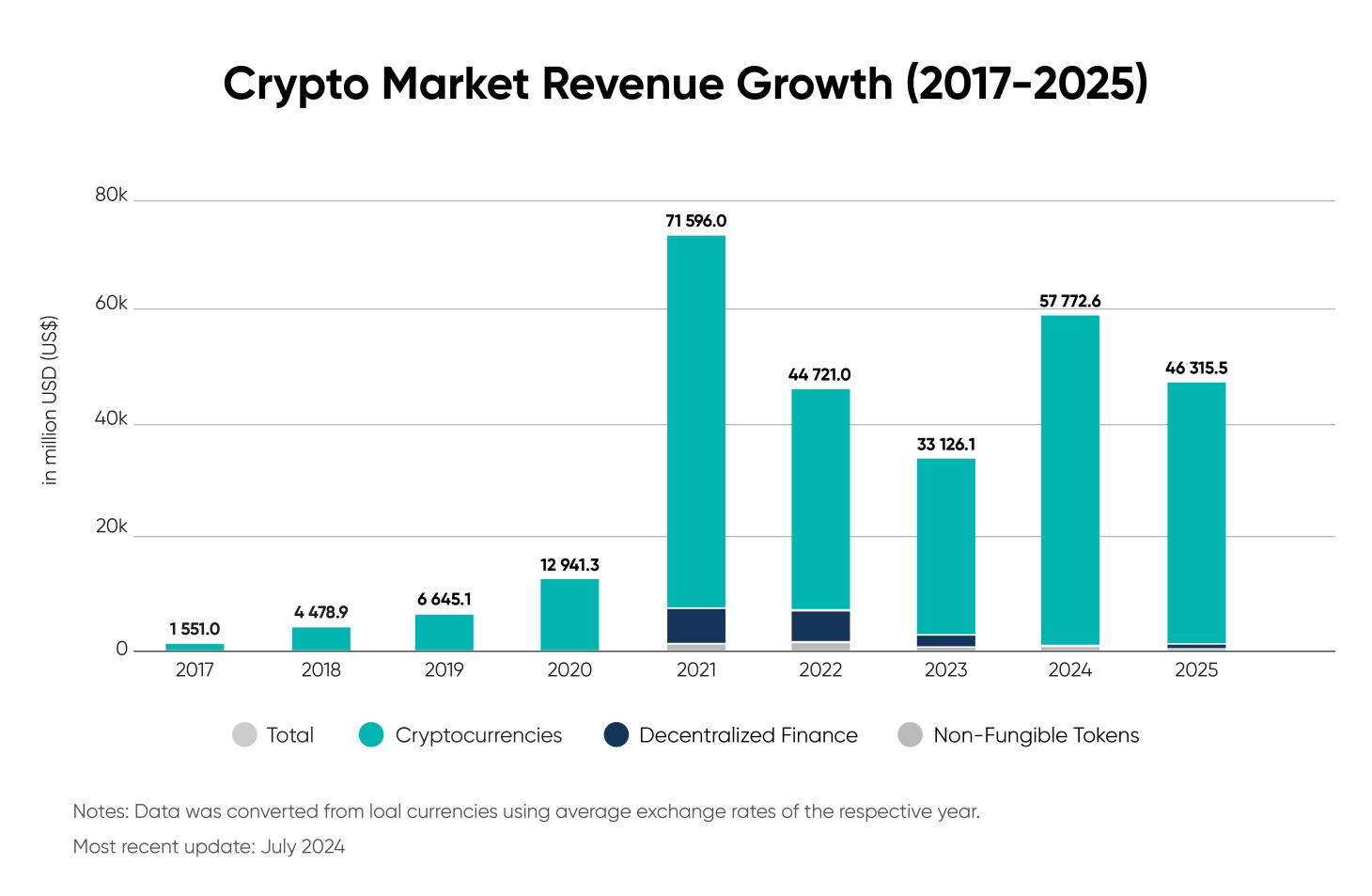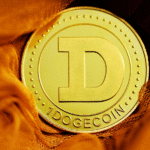Digital assets have revolutionized the global financial landscape, transforming how we perceive and engage with financial systems. This blog explores the historical development of digital assets, their growing influence, and the transformative potential they hold for the future.

A Brief History of Digital Assets
Early Beginnings: The Birth of Cryptocurrencies
The concept of digital assets began gaining traction in the early 2000s with the advent of cryptocurrencies. Bitcoin, launched by an unidentified individual or group under the pseudonym Satoshi Nakamoto in 2008, became the pioneering decentralized cryptocurrency. By utilizing blockchain technology, it established a secure, transparent, and unchangeable ledger, significantly transforming conventional financial systems. The success of Bitcoin led to the emergence of various other cryptocurrencies, commonly referred to as altcoins, including Ethereum, Litecoin, and Ripple.
The Rise of Blockchain Technology
Blockchain technology, the underlying technology of cryptocurrencies, emerged as a powerful tool with applications beyond digital currencies. Its decentralized nature, security, and transparency made it an ideal solution for various industries, including finance, supply chain, healthcare, and more. Ethereum, introduced in 2015 by Vitalik Buterin, further expanded the possibilities of blockchain by enabling the creation of smart contracts, self-executing contracts with the terms directly written into code.
The Growing Influence of Digital Assets

Mainstream Adoption
Digital assets have seen significant mainstream adoption over the past decade. Major financial institutions, corporations, and governments have recognized the potential of digital assets and blockchain technology. Companies like Tesla, MicroStrategy, and Square have made substantial investments in Bitcoin, legitimizing its role as a store of value. Central banks worldwide are also exploring Central Bank Digital Currencies (CBDCs) to modernize their monetary systems and enhance financial inclusion.
Tokenization of Real-World Assets
One of the most transformative aspects of digital assets is the tokenization of real-world assets. Tokenization involves converting physical assets, such as real estate, art, and commodities, into digital tokens on a blockchain. This process offers increased liquidity, fractional ownership, and democratized access to previously exclusive asset classes. For instance, platforms like Tokenization Labs and Masterworks allow investors to purchase fractional ownership of high-value properties and artworks, democratizing investment opportunities.
Decentralized Finance (DeFi)
Decentralized Finance, or DeFi, represents a paradigm shift in the financial industry. DeFi platforms leverage blockchain technology to offer financial services, such as lending, borrowing, trading, and earning interest, without the need for traditional intermediaries like banks. This decentralized approach enhances transparency, reduces costs, and increases accessibility. Popular DeFi platforms like Uniswap, Aave, and Compound have gained significant traction, attracting billions of dollars in total value locked (TVL).
Global Adoption of Digital Assets: An Introduction

The Global Impact of Digital Assets
Financial Inclusion
Digital assets have the potential to promote financial inclusion by providing access to financial services for the unbanked and underbanked populations. In regions with limited access to traditional banking infrastructure, digital wallets and mobile banking solutions powered by blockchain technology can offer a secure and accessible alternative. This inclusivity can drive economic growth and reduce poverty by enabling individuals to participate in the global economy.
Cross-Border Transactions
Digital assets facilitate seamless and cost-effective cross-border transactions. Traditional cross-border payments are often slow, expensive, and involve multiple intermediaries. Cryptocurrencies like Ripple (XRP) aim to address these challenges by providing near-instantaneous transactions with minimal fees. This has significant implications for remittances, international trade, and global business operations.
Regulatory Challenges and Considerations
While digital assets offer numerous benefits, they also present regulatory challenges. The evolving regulatory landscape varies across jurisdictions, with some countries embracing digital assets and others imposing stringent regulations. Governments and regulatory bodies are working to establish frameworks that balance innovation with consumer protection and financial stability. Clear and consistent regulations are crucial to fostering the growth of digital assets while mitigating risks such as fraud, money laundering, and market manipulation.
Environmental Impact
The environmental impact of digital assets, particularly cryptocurrencies, has garnered significant attention. The energy-intensive nature of cryptocurrency mining, especially Bitcoin, has raised concerns about its carbon footprint. However, the industry is actively exploring sustainable alternatives, such as proof-of-stake (PoS) consensus mechanisms, which consume significantly less energy compared to the traditional proof-of-work (PoW) models. Additionally, initiatives like Bitcoin’s transition to renewable energy sources aim to mitigate the environmental impact.

The Future of Digital Assets
Integration with Traditional Finance
The future of digital assets lies in their integration with traditional finance. As the financial industry continues to embrace digital assets, we can expect to see increased collaboration between traditional financial institutions and blockchain-based platforms. This integration will drive innovation, enhance efficiency, and create new financial products and services that cater to the evolving needs of investors and consumers.
Advancements in Technology
Advancements in blockchain technology, such as layer 2 solutions and interoperability protocols, will further enhance the scalability, security, and usability of digital assets. These technological advancements will pave the way for the widespread adoption of digital assets across various industries, from finance and healthcare to supply chains and entertainment.
Empowering Individuals and Businesses
Digital assets empower individuals and businesses by providing greater control over their financial assets and transactions. The decentralized nature of blockchain technology eliminates the need for intermediaries, reducing costs and enhancing transparency. As digital assets become more mainstream, individuals and businesses will benefit from increased financial autonomy and security.
In conclusion, the evolution of digital assets is reshaping the investment landscape by offering new opportunities and efficiencies. By understanding the historical development and global impact of this transformative approach, including digital asset portfolio management, cryptocurrency investment solutions, stablecoins for investment, and altcoin investment, investors and businesses can position themselves to capitalize on the potential of this emerging market.
Get the latest digital asset and cryptocurrency updates, insights, and trends. Our digital asset specialists are here to provide the knowledge you need to stay informed and confident. Join us now and stay knowledgeable.
Disclaimer: The information provided on this page is for educational and informational purposes only and should not be construed as financial advice. Cryptocurrency assets involve inherent risks, and past performance is not indicative of future results. Always conduct thorough research and consult with a qualified financial advisor before making investment decisions.
The cryptocurrency and digital asset space is an emerging asset class that has not yet been regulated by the SEC and US Federal Government. None of the information provided by Kenson LLC should be considered financial investment advice. Please consult your Registered Financial Advisor for guidance. Kenson LLC does not offer any products regulated by the SEC, including equities, registered securities, ETFs, stocks, bonds, or equivalents.














